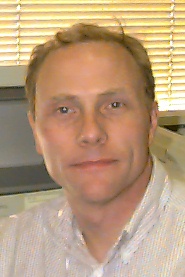I think spending money on TV makes perfectly good sense. TV is tough, because the audience is fragmenting. But the best way to get butts in seats is to show a trailer, and TV [is a good environment for that].

"David Edward Card" is a Canada/Canadian labour economics/labour economist and Professor of Economics at the University of California, Berkeley.
Card earned his Bachelor of Arts degree from Queen's University in 1978 and his Doctor of Philosophy/Ph.D. degree in Economics in 1983 from Princeton University, under supervision of Orley Ashenfelter.
From 1988 to 1992, Card was Associate Editing/Editor of the Journal of Labor Economics and from 1993 to 1997, he was co-editor of Econometrica. He was the recipient of the 1995 John Bates Clark Medal, awarded to "that American economist under the age of forty who is judged to have made the most significant contribution to economic thought and knowledge." He gave the 2009 Richard T. Ely Lecture of the American Economic Association in San Francisco. Along with N. Gregory Mankiw, he was elected vice president of the American Economic Association for 2014.
More David Card on Wikipedia.Nothing ever replaces anything. When TV came along, radio didn't go away. This has the potential to unlock local ad dollars, but Amazon doesn't want to take phone calls.
They've just come out of nowhere, and they're huge. They've done a number of things that were really smart. One was blogging. People have been doing personal home pages for as long as the Internet's been around, but they were one of the first social networks to jump on that. They've also jumped on music, and there's a lot of traffic surrounding that.
There will be initial resistance to this type of service, because privacy and security are concerns.
AOL isn't letting anybody into their network, if they don't have to. There's no incentive for AOL to cooperate with anyone.
I'm excited about the potential of the technology, but right now video is pretty brutal.
Having a file compression format and MP3 players aren't enough. The catalyst for online music distribution will be products that offer security for digital content and standards around which consumer electronics companies and others can build products.
That's one thing the Web is great for: identifying passionate fans and [reaching out to them].
The thing you can do online that you can't do in the physical world is interactivity and two-way conversation.
Copyright © 2024 Electric Goat Media. All Rights Reserved.